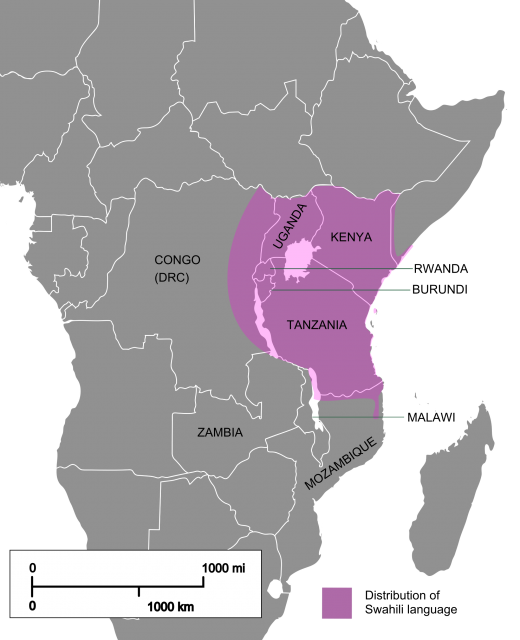Swahili
The Swahili people live in towns and villages along a 1,000-mile stretch of the East African coastline, from SOMALIA to MOZAMBIQUE. Many also live on ZANZIBAR, Pemba, and the COMORO ISLANDS off the coast. The name Swahili, an Arabic term meaning “people of the coast,” was given to them by Arabs who conquered the region in the early 1700s. However, the Swahili rarely use this name, preferring to identify themselves by names that refer to individual towns.

The Swahili are Muslims and use both the Arabic and the Roman alphabets for writing. Their language, Swahili, belongs to the Bantu family of African languages but includes many words borrowed from Arabic. It has become a common language of trade and communication throughout eastern Africa.
Swahili civilization, unlike that of neighboring African peoples, is urban, maritime, and based on commerce. Since they first established towns along the coast before A.D. 1000, the Swahili have been agents in trade between Africa and Asia. Their economy suffered when Great Britain ended the SLAVE TRADE in the 1800s and more recently when longdistance shipping trade across the Indian Ocean declined. The Swahili are noted for their large, stone-built houses and towns, their elegant clothing and food, and for a high level of literary achievement, especially in poetry. (See also Bantu Peoples.)